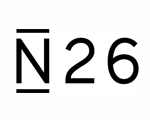The Polish currency is called the Zloty and it is internationally abbreviated as PLN. The Zloty is made up of 100 Groszy. There are 10, 20, 50, 100 and 200 Zloty bills. Live international exchange rates can be found at www.xe.com .
Payments in Poland
When shopping in Poland you will need to pay in the local currency. You will need to exchange your Euro, Dollars or other currency for Zloty because no other currency will be accepted. Exceptions are the regions that border Germany, where the Euro is likely to be accepted. However you will get bad exchange rates which is why it is recommended that you pay with Zloty here as well.
You can change money in banks, where you will be charged commission for the transaction. You can also go to a kantor (exchange office) which usually provides services without commission and usually offers better exchange rates than banks.
In most places in Poland you can also pay for your shopping by using your bank card (many types are accepted). Credit cards can usually only be used in larger cities and tourist areas and you may be charged to use them.
Travellers cheques are the safest way of carrying money. However, they are only accepted by main banks and hotels. They are not accepted by kantors.
Opening a bank account
To open a bank account in Poland you will usually have to provide your passport and a postal address, which does not have to be in Poland. Sometimes additional documentation is needed. Most expats will find they need a local bank account for day-to-day living (paying bills, receiving salary, etc.).
There are different types of banks and they all offer different services. In most banks you can easily open any type of account without major problems. There are also international banks located in Poland, among which you can find the most common European banks.
While services offered are more or less the same with every bank, charges differ greatly. Depending on what services you mainly want to use you should take some time to compare different offers.
Usually you will have to pay monthly fees of around 15 to 20 PLN for your account. Additionally there are charges for transactions and direct debit authorities. Online banking, credit cards and overdrafts are available with many banks but fees vary considerably.
If you are a EU citizen and study in Poland you can take advantage of special student offers. Most of the time these offers include no monthly fees and free online banking. In addition to your passport you will have to provide a certificate of matriculation.
Transferring money to Poland
Cash worth up to 10.000 € can be brought in to Poland without declaring it. If you want to bring in more money you will need to fill in a declaration form at the border.
If you want to transfer bigger amounts of money from or to Poland it is advisable to make use of the EU-Standard-Transfer. This is the most convenient and inexpensive option. However, it can only be used for transactions within the EU.
For transactions between Poland and non-EU countries there are several options, including Western Union and MoneyGram money transfers.


